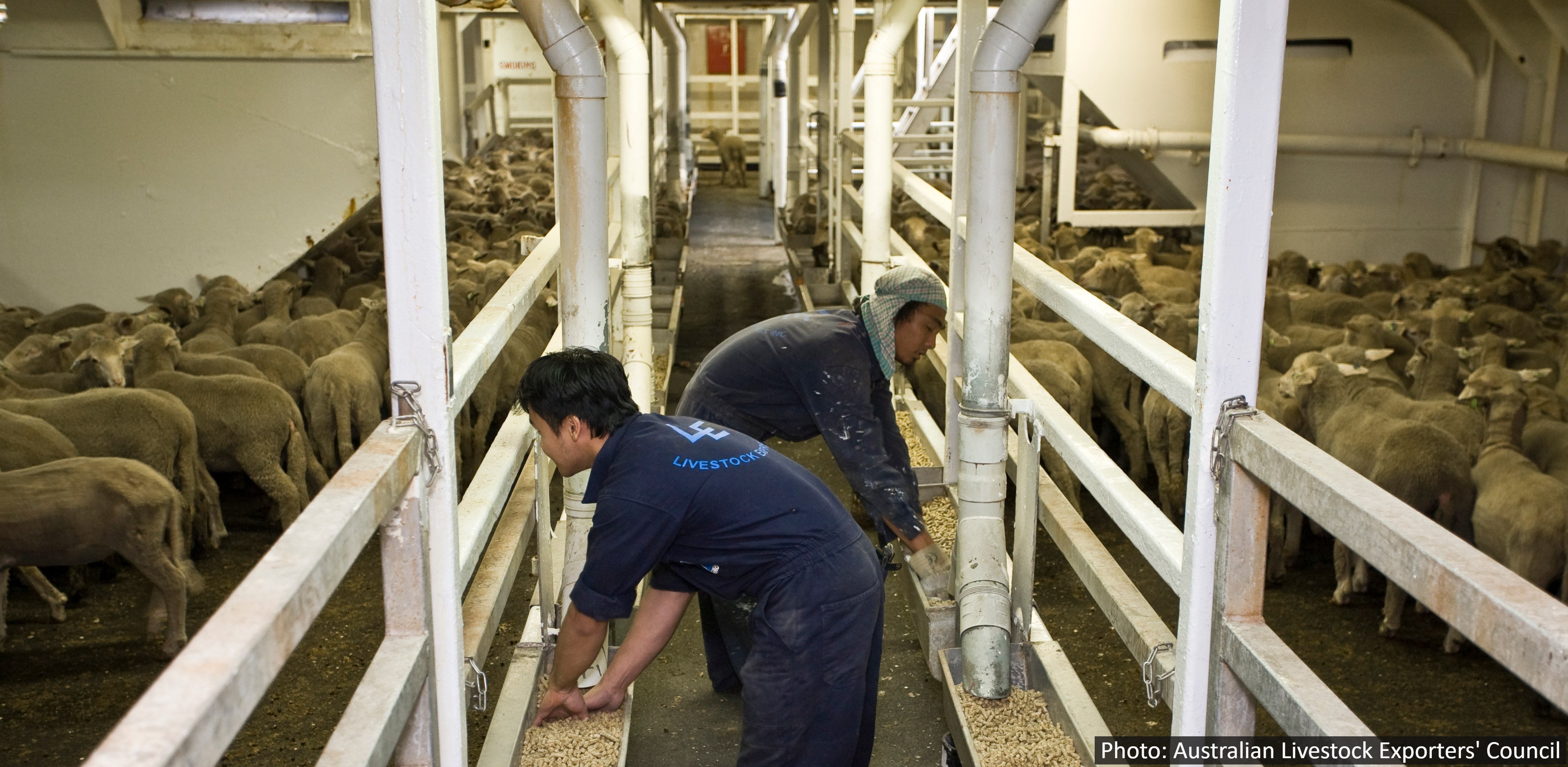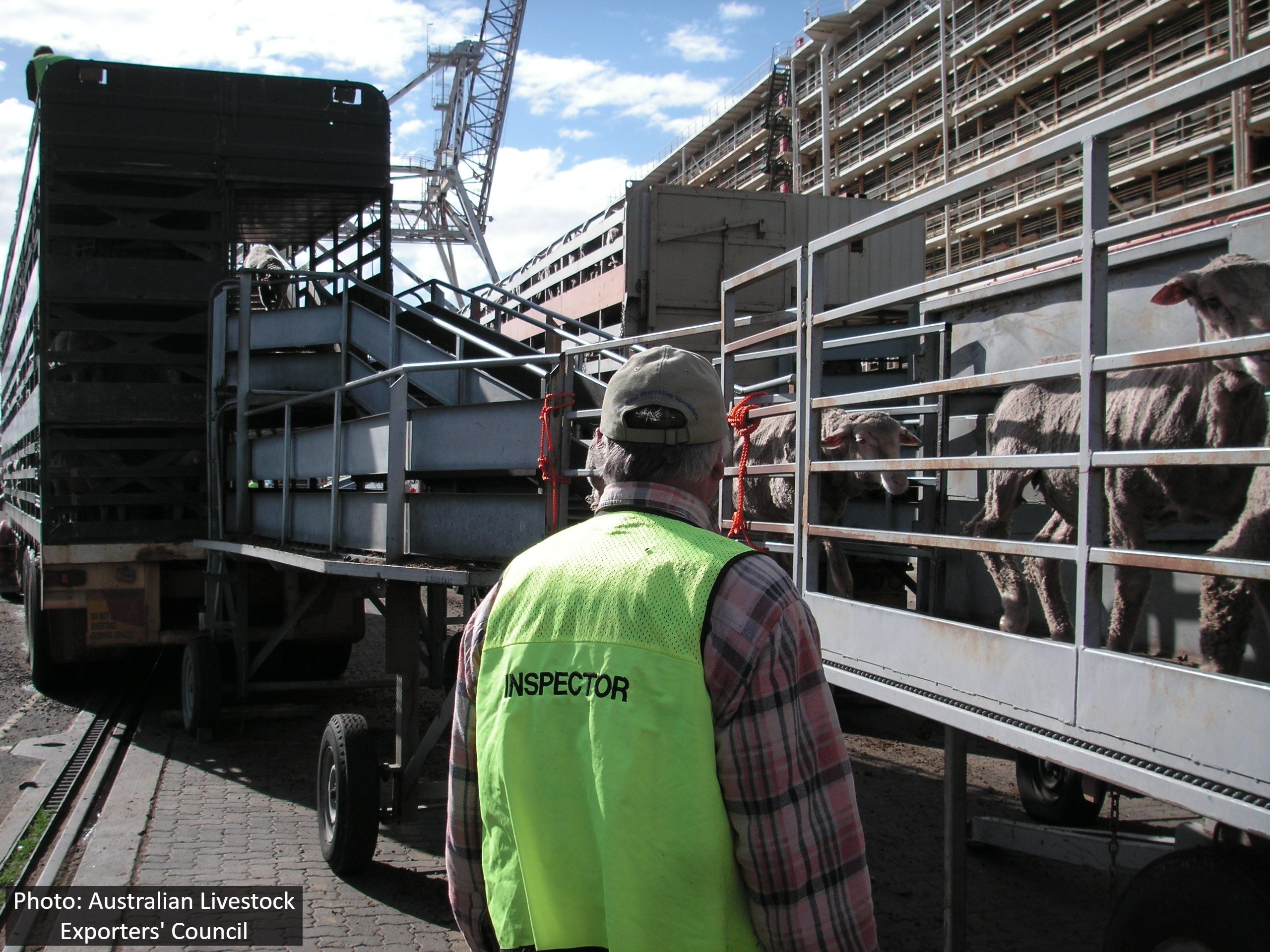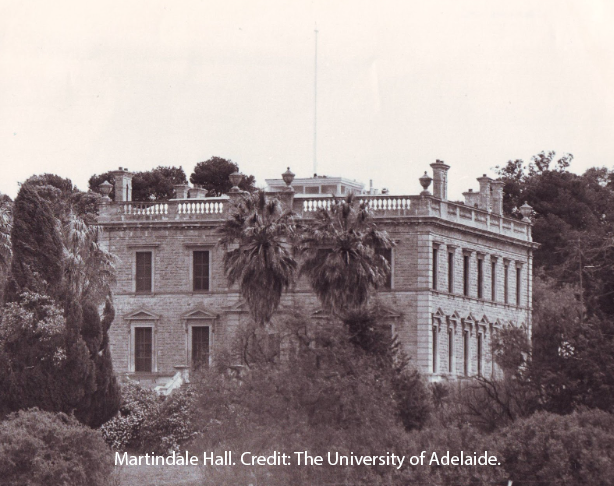 Producer sentiment in the Western Australian sheepmeat industry has nosedived, as they stare down the federal government’s impending phase out of live sheep export by sea.
Producer sentiment in the Western Australian sheepmeat industry has nosedived, as they stare down the federal government’s impending phase out of live sheep export by sea.
The latest Sheep Producer Intentions Survey by Meat & Livestock Australia and Australian Wool Innovation has found a 90-point decline in overall sentiment in the state from October 2022 to May 2023.
With the impending decision on the live export trade for sheepmeat weighing heavily on the state’s producers, their outlook for the next 12 months in the industry has hit minus 48 points.
It’s a result that has significantly reduced national producer sentiment from its buoyant position in October 2022, despite most other states remaining positive about the future of the industry (net sentiment down 40 points to 27).
The sentiment data is backed by Rabobank’s latest rural confidence findings, which show that while confidence edged higher nationally, WA bucked the trend and recorded a further dip into negative territory.
The same survey showed overall confidence in the sheep industry is down from last quarter, and there was an 8% jump in the number of producers nervous about government policies and intervention.
Sheep Producers Australia chief executive Bonnie Skinner said the sudden drop in sentiment in WA was cause for concern.
“Sheep producers need confidence that the government sets policy that is responsible and considered, in order for producers to continue to invest their time and livelihoods into agriculture,” Ms Skinner said.
“Producers are losing confidence that a commercial sheep industry will still exist, should live sheep export by sea be phased out.
“Live export plays a vital role in underpinning competition that drives a viable and sustainable sheep industry.”
Despite repeated calls for the federal government to back down on its plan to phase out the trade, they won’t be swayed on the election promise.
Agriculture Minister Murray Watt said Labor wants to ‘be a government that keeps its election commitments’.
“We actually took this to two elections, not just one, so I don’t think it’s really a surprise to people that we’ve decided to go down this path,” Mr Watt told the Global Food Forum last month.
“This is an industry that has been in transition for quite some time and even over the life of the last government, the number of live sheep exported from WA fell by about 70%.
“It’s now about 12% of sheep that are turned off farms in WA so it’s a relatively small percentage of the industry, but that doesn’t mean we shouldn’t ignore the impacts of it and that’s why we’re undertaking the consultation.”
Reasserting his belief in the merits of the policy, Mr Watt cited ongoing animal welfare concerns.
“For some time now, consumer sentiment and community sentiment has been against the industry as a result of some of those terrible incidents we’ve seen in the past,” he said.
“I recognise that the industry has made some improvements on the animal welfare front, but the reality is that the mortality rates for live sheep export is still double what they are for live cattle export, for example.
“I think that it is an industry whose time has come for it to be phased out.”

The government’s position has again been criticised by the National Farmers’ Federation, with president Fiona Simson saying the results of the recent producer surveys should be a wake-up call and prompt a rethink of its activist-led live sheep export ban.
“Confidence among WA sheep producers is through the floor. It’s no surprise given the cloud of uncertainty Canberra has blown their way,” Ms Simson said.
“We’re starting to see the real cost of this policy, and it’s still only early days.
“These aren’t just numbers. They’re real farming families who don’t know what their future holds. They can’t plan or invest because they don’t know if they’ll have a market to sell to.”
Ms Simson said the resulting industry chaos was exactly what happens when ‘you have animal rights extremists dictating the agenda in Canberra’.
“The government needs to look closely at these numbers and decide whether it wants to listen to the evidence or the activists,” she said.
Ms Simson urged the government to consider data released last week by research firm Voconiq, showing an uplift in support for the live sheep trade.
“The Australian public understands the importance of this trade to the diet and nutrition of people in the Middle East, and they don’t want to see the trade shut down at any cost,” she said.
“The government’s argument that this trade has lost social licence isn’t backed up by the evidence – just activist talking points.”
The research program - funded by a collaboration between the Australian Livestock Export Corporation and MLA - represents the largest, most authoritative, and most comprehensive dataset on Australian attitudes toward the industry available.
The research aimed to explore and present the critical nuance and complexity inherent in the relationship that Australians have with the live export trade.
Broadly, there were several key findings:
-
Live exports are seen by Australians to be an important part of the agriculture sector, contributing significantly to the economic wellbeing and livelihoods of its participants in regional Australian communities and throughout the industry value chain
-
Australian attitudes toward the welfare standards applied to the industry have improved over time. Coupled with strong confidence in the regulatory governance of the industry, Australians have demonstrated growing confidence in the way the industry operates on this most important issue
-
Public trust, and then acceptance, is shaped by community confidence that the industry is:
-
Listening and responding to community concerns
-
Delivering health, nutrition, and cultural value to citizens in overseas destination markets
-
Adhering to formal regulatory regimes that community members perceive to ensure high welfare standards.
-
When asked how they felt about the costs and benefits of the live export industry overall and when considering the live export of sheep specifically, the majority of participants either said benefits outweigh costs (36%), or were neutral on the matter (38% industry, 37% sheep) for both questions.
These patterns show the costs and benefits of the industry are weighed similarly by Australians, independent of the animal being exported, the report said.
The researchers concluded there was no significant difference in the way Australians view live sheep exports relative to the industry in general.
 Results
Results-3.png)
